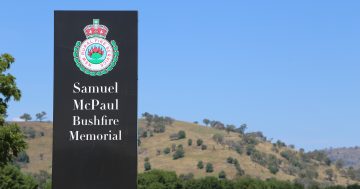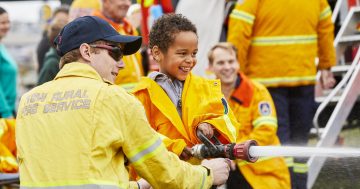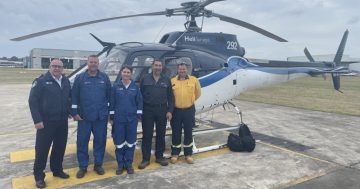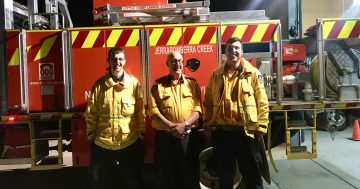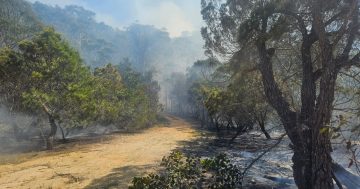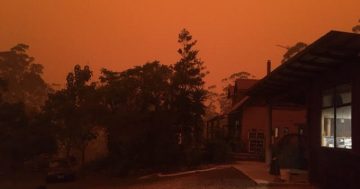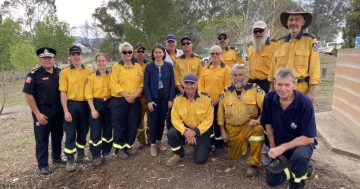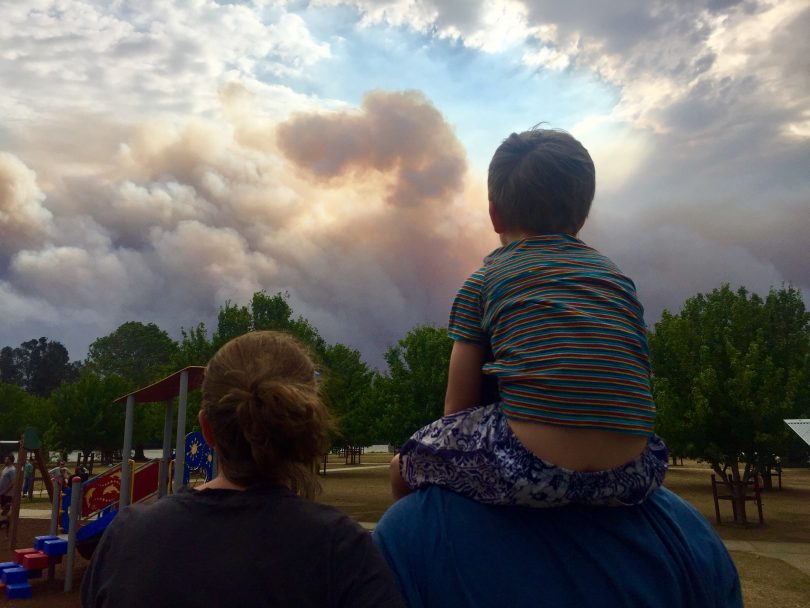
A family watches bushfires burn near Moruya River on 31 December 2019. Photo: Lisa Herbert.
The NSW Rural Fire Service Commissioner, Shane Fitzsimmons, has urged people to be mindful of those still feeling the effects of the worst bushfire season in history.
The 2019-2020 bushfire season officially ended on 31 March, but Commissioner Fitzsimmons said many families and businesses are still dealing with the devastation.
“We must be mindful of all those still enduring the very raw and difficult recovery process as a result of the fires, and that our efforts are sustained through this very personal challenge,” he said.
Homes and businesses throughout the south-east region of NSW are still being rebuilt after multiple fire emergencies threatened towns such as Cobargo, Batemans Bay, Moruya, Braidwood and many rural communities in between during the summer.
Commissioner Fitzsimmons said the recent bushfire season had been unprecedented in terms of conditions experienced, the loss of lives and property, and the threat to communities across large parts of NSW.
Crews responded to more than 11,400 bush and grass fires that burnt in excess of 5.5 million hectares – the equivalent of 6.2 per cent of the state.
“Fires this season have destroyed 2448 homes, however, the great work of firefighters saw 14,481 homes saved,” he said.
“There were six days when areas across NSW recorded catastrophic fire weather conditions.
“At the height of activity, there was, on average, 2500 firefighters in the field each shift, with up to 4000 on days of increased fire danger and impact.”
Commissioner Fitzsimmons said that, most tragically, 25 lives were lost, including three NSW Rural Fire Service (NSW RFS) volunteers and three US aerial firefighters.
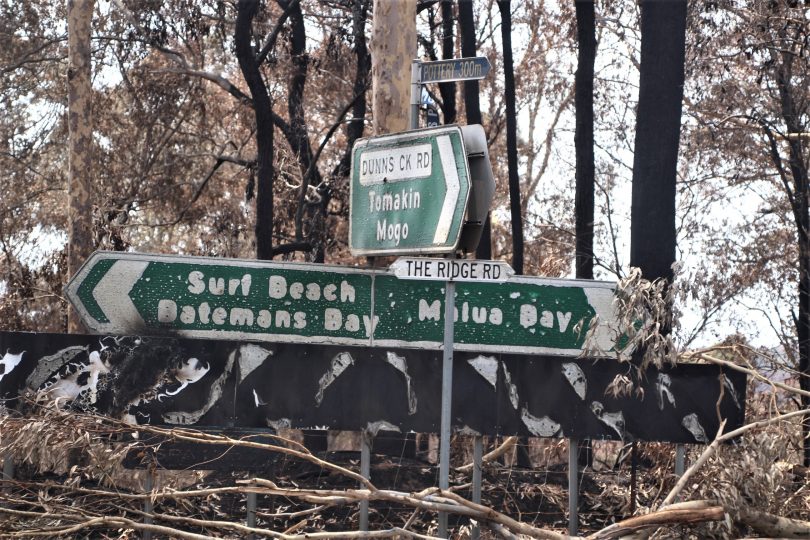
Burnt out road signs on the corner of Dunns Creek Road and The Ridge Road near Batemans Bay. Photo: Alex Rea.
The NSW RFS marked the end of the bushfire season by thanking its members and the community for their efforts during an extremely challenging season.
The end of the bushfire season also means that from 1 April, fire permits will no longer be required for rural landholders wishing to conduct burns.
However, landholders have been asked to notify authorities if they plan to conduct burns, and penalties apply if fires are left unattended or escape containment.
Commissioner Fitzsimmons said all emergency services personnel, especially NSW RFS members, had given so much to their communities, spending time away from their families, jobs and loved ones.
Agencies involved in the combined bushfire response included Fire and Rescue NSW, Fire & Rescue ACT, National Parks and Wildlife Service, ACT Parks and Conservation, NSW State Emergency Service, Forestry Corporation of NSW, Australian Defence Force and police and ambulance services.
Fire services from across Australia were boosted by the international response, including assistance from Canada, the US and New Zealand.
“Time and time again, we’ve heard from affected areas how the incredible work of firefighters on the ground – backed up by crews in the air – have helped save people and property,” said Commissioner Fitzsimmons.
The official end to the bushfire season comes as the lead author of the annual Australia’s Environment report, Professor Albert van Dijk from the Australian National University, said the current COVID-19 pandemic offers a model of how humanity can tackle bushfire threats.
“The COVID-19 crisis shows we can take the local and global actions necessary once society understands the seriousness of a threat,” said Professor van Dijk.
“Climate change is, in many ways, similar. It happens slower, but it also poses an existential threat – we already saw massive impacts last year. Acting now can save a lot of pain later.”
Commissioner Fitzsimmons also said preparation will prevent a repeat of last season’s devastation.
“While the focus for all of us now is rightly on the coronavirus response effort, the next bushfire season will begin in only a matter of months. So keep your property prepared and have your bushfire survival plan up to date and discussed with those in your family and household,” he said.






